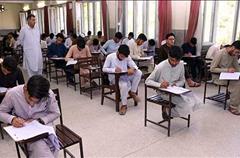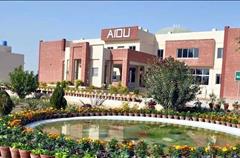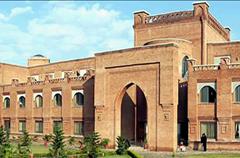Lahore, The Punjab is set to take a lead in computer technology, as the provincial government has vigorously started the process of establishing computer labs in its schools with an aim to make every student fully computer literate.
In the first phase it has established computer labs in 4286 of its schools each equipped with 15 seats comprising three desktops Personal Computers and 12NComputing virtual desktops that will impart training to over three million students annually.
Experts say that introduction of computer labs in the government schools will have a contagious impact. It will force the low end private schools to establish at least similar if not superior computer labs. The Punjab government may even make it mandatory in the next few years for the registered private schools to have computer labs. The introduction of computer knowledge among the children will increase the internet use in the country and expose the unexplored talent of millions who have remained deprived of this modern technology.
The idea was conceived last year by the planners of the Punjab government, and the budgetary allocations were made in the provincial budget for 2009-10. The original idea was to procure 15 desktop PCs for each school. However, the government was able to save Rs1.8 billion from its budgeted allocation by adopting the NComputing technology.
The NComputing solution includes both the virtualisation software (vSpace) that creates the "virtual" sessions inside a PC or server, and the thin-client devices that connect the user's monitor, keyboard and mouse to the shared computer. Thus one desktop PC can be connected with 4-10 virtual desktops. Thus instead of buying 64290 desktop PCs, the government procured 12858 PCs and supplemented the balance 51432 seats with NComputing devices.
Punjab Government's IT Labs project can change the computing environment, especially in emerging economies like Pakistan. The decision to deploy this IT labs project establishes the Punjab government as an innovator in educational computing in Pakistan and a model for other governments, considering similar projects.
This project has been successful due to the key factor that the Punjab government is determined to provide maximum number of computer seats at a minimum cost. Through this IT Labs project the Punjab government will not only save nearly Rs. 1.8 billion in up-front and Rs.10 million per month in ongoing costs which translates into more than 360 million over the project life of three years.
The cost will be saved on energy consumption that 64290 desktop PCs will have consumed. One desktop PC consumes 100 watts of electricity per hour. A virtual desktop installed through NComputing device will consume only 10 watts of electricity per hour that will translate into saving of Rs10 million per month at current electricity rates or Rs 360 million in three years.
NComputing's desktop virtualisation technology has now become a part of the lives of millions people across the world.
This technology has revolutionised the education system in Macedonia, where every student in that country has a computer at his desk. Similarly in Andhra Pradesh, India, the government deployed NComputing to provide computing access to 1.8 million schoolchildren throughout the state.
In Pakistan only few highly expensive schools provide each student with a separate computer desk. With the introduction of Ncomputing technology the time is not far when many schools will be doing that. They will simply require for a class of 30 only two desktops and two Ncomputing devices, having 15 virtual desktops each to provide one terminal to each student and the teacher. The learning process will accelerate.






























.jpg)







